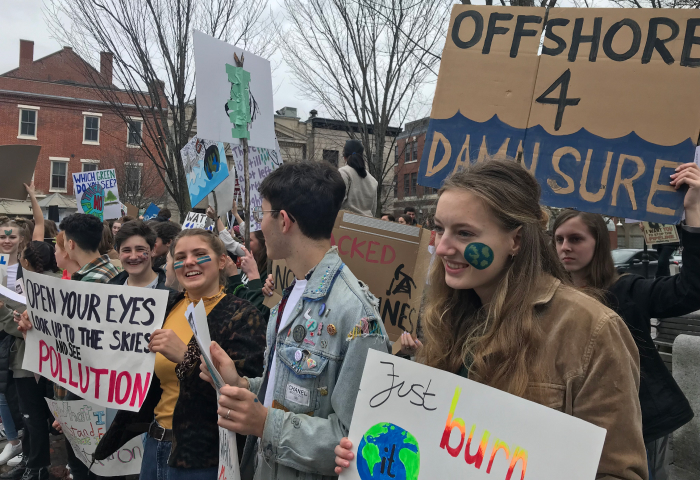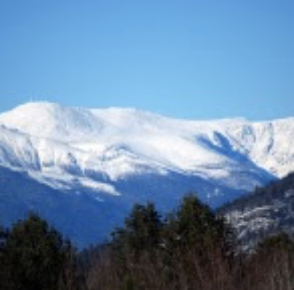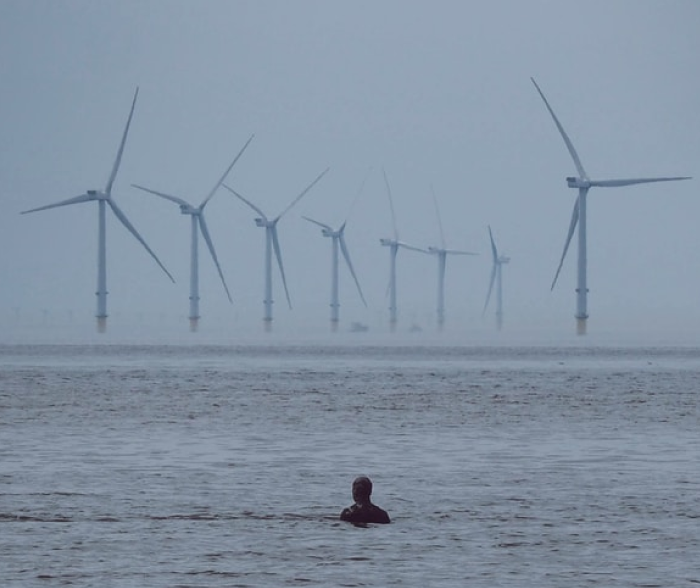Photo by Josué Rivas Fotographer[/caption]
Let’s be clear, even though this is a climate justice issue, this is not the reason that we stand in solidarity with Standing Rock. We stand in solidarity for the sacred lives and land of our indigenous brothers and sisters. The war against indigenous peoples, a war that began since first contact, has resulted in the stealing and colonization of indigenous land and the erasure of indigenous culture and peoples. The conditions of this war, of our anti-indigenous society and the erasure of indigenous people, allow corporate power and greed to rule here at home and around the world. As a result of this war, the most dangerous energy projects with significant health and environmental impacts have been developed on stolen indigenous lands or near marginalized communities. While this is an issue that impacts and should concern all of us, we must not forget who is leading this fight and why.
The patterns of exploitation, state violence, oppression, resource extraction, and domination over indigenous people and their land have long been documented in our history books and traditions around this time of year. But this isn’t history, this is happening now and on our watch. What will our grandchildren say about us 20, 50, 100 years from now, and what will their history books say about how we treated each other and our planet? Indigenous people often pay the greatest price when the landscape is developed for the benefit of the world’s industrial economy and to support dominant white culture and way of life. How can we organize to disrupt these historical patterns and shift our culture to one that values the deep connections and relationships that we hold with each other and the land rather than this endless need for development and growth?
First and foremost to support our brothers and sisters at Standing Rock, we need to understand who and what this struggle is about. There are many reasons to resist the Dakota Access Pipeline, including the fact that we shouldn’t be investing in fossil fuel infrastructure, or accelerating the impacts of climate change, or sacrificing our clean water and other natural
resources especially as we are experiencing some of the most extreme weather events and episodes of drought in our lifetimes. What could be more critical than protecting and securing these life-giving resources? For all of us across the country and the world, it is about all of these things and the questions of our survival and about what kind of livable planet, if any, we will leave to future generations.
And while this struggle is an indigenous peoples’ struggle, it is also our struggle. From the Standing Rock Sioux Nation in North Dakota to here in NH, oil and natural pipelines across the United States and around the world serve as physical reminders of white supremacy, colonialism, and continued environmental racism, and pipelines perpetuate our climate crisis driven by 200 years of an extractive fossil fuel economy. Recently some of our local community groups, like NH Pipeline Awareness in the Monadnock region, successfully resisted Kinder Morgan in developing a pipeline route in our state. And the same struggle is taking place across our region, including in West Roxbury, MA where groups such as Resist the Pipeline are using nonviolent disobedience to stand in resistance with the residents whose health and safety has been jeopardized by this project.
You can imagine why it matters where the pipeline is routed- in many instances these projects degrade the local environment, negatively impact residents’ health, pollute local water sources, and lower property values, and they carry the risk of dangerous and extensive leaks, even explosions. So guess who gets to pay the price for this dangerous and extractive infrastructure and have it built in their backyards or on their sacred lands? Economically and politically marginalized communities, often times indigenous, low-income or communities of color, and this pattern has played out over the course of history as well, whether it’s coal-fired power plants, or waste incinerators, or chemical production facilities. Chances are for many of us, our water source, health, and life will never be compromised in the name of progress and the need for domestic energy sources or the need to build the local economy, but the day-to-day reality for many members of our communities is quite different. And in the case of Standing Rock, this pipeline was redirected from an area where it was most likely to impact white people.
This is why I stand in solidarity with Standing Rock and groups like 350NH and 350.org who realize this struggle is first and foremost about those who have borne the burden for too long and support the community groups and individuals at the center of these struggles. Indigenous people and all people are more than the sum of their oppression from colonialism and the fossil fuel industry. Those who have been most directly impacted must and will lead our movements for self determination and climate, economic, and racial justice, and they also hold the solutions.This is why we stand in solidarity first and foremost with the Sioux Tribe and all indigenous peoples as they lay down their bodies for their right to life and one of our most critical life-giving resources. This is also why 350.org recently endorsed the The Movement for Black Lives Platform, and why we fight for the new world it demands.Waking up today to the results that Trump will be the 45th President of the United States, we must stand in solidarity with our brothers and sisters in Standing Rock as they lead the efforts to stop the DAPL, protect water, and ensure the self determination
of all indigenous peoples in the US and everywhere. For too long our government and companies have waged an attack on indigenous peoples, communities of color and our planet. We can only move forward if we recognize and disrupt these long-accepted patterns. To do so, we can only support energy policies that acknowledge and remedy the historic and ongoing social and environmental costs of the current extractive energy system on Indigenous peoples, communities of color, workers, low-income communities, and the environment. We must reparate the damage and harm that we have caused by returning land and redistributing stolen resources. We must resist against the patterns of history and our broken political system and organize to build solutions and move into a new world that is rooted in the values of regeneration, resilience, cooperation, deep democracy, and love for all peoples and our planet. And now, more than ever, we ask you to please join us.
Standing Rock, we see you, and we stand with you.
In solidarity from NH,
Jennifer Near
350 NH Board Member
ACTION STEPS IN SUPPORT OF STANDING ROCK
Here are some additional concrete things that you can do right now:
- Organize or get involved in a solidarity action in your community. You can go to this website to find the closest action.
- Contribute to the Sacred Stone Camp Legal Defense Fund.
- Contribute to the Sacred Stone Camp gofundme account.
- Donate to support the Standing Rock Sioux.
- Donate items from the Sacred Stone Camp Supply List.
- Join the NoDAPL Post Card Blitz.
- Call North Dakota governor Jack Dalrymple at 701-328-2200. When leaving a message, state your thoughts about this subject-please be professional.
- Sign the petition to the White House to Stop DAPL.
- Call the White House at (202) 456-1111 or (202) 456-1414. Tell President Obama to rescind the Army Corps of Engineers’ Permit for the Dakota Access Pipeline.
- Call the Army Corps of Engineers and demand that they reverse the permit: (202) 761-5903









